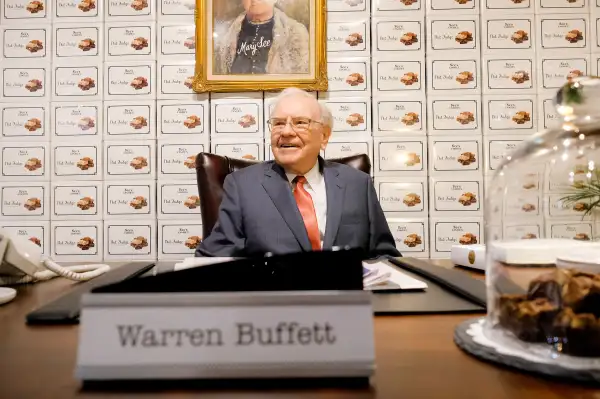Warren Buffett Just Revealed What He Learned from His First Investment — At Age 11
Money is not a client of any investment adviser featured on this page. The information provided on this page is for educational purposes only and is not intended as investment advice. Money does not offer advisory services.

Warren Buffett bought his first shares of company stock when he was 11 -- but credits his incredible success to "the American tailwind."
The investing legend known as the Oracle of Omaha said Saturday in his annual letter to Berkshire Hathaway shareholders that March 11 will mark the 77th anniversary of his first investment, a $114.75 purchase of preferred shares in a company known as Cities Service made in 1942. Buffett added that he had been saving the sum, equivalent to about $1,790 today since age 6, before deciding to go "all in."
"I had become a capitalist, and it felt good," he wrote.
Buffett calculated that that initial investment would be worth $606,811 today if he had invested it in a hypothetical no-fee S&P 500 index fund (although only half that amount if he'd paid the equivalent of an annual 1% fee to investment mangers or consultants.)
Still, Buffett credits the immense fortune he's earned not any precocious foresight, but the resilience of the American economy. "Much of Berkshire’s success has simply been a product of what I think should be called The American Tailwind," he wrote.
Among the lessons he imparts: Buffett cautions those overly worried about the U.S. ballooning national debt, noting that during his 77-year investing career, the national debt has already grown 400-fold. Nonetheless, the stock market has remained a greater engine of wealth than other supposed stores of value like gold.
Buffett also asserted that U.S. economic success has been bi-partisan, noting that, over the past eight decades, the nation has had seven Democratic presidents and seven Republican ones, while overcoming various economic calamities ranging from runaway inflation in the late 1970s to a collapse of home values in the late 2000s.
Indeed, Buffett's unabashed cheerleading for the U.S.'s capitalist economic system may seem out of step with the far left of the U.S. political spectrum today, as politicians like Sen. Bernie Sanders and Rep. Alexandria Ocasio-Cortez embrace the label of socialist.
But Buffett offers his sharpest criticism for investors and businesspeople who might be tempted to take all the credit for their own successes. "It is beyond arrogance for American businesses or individuals to boast that they have 'done it alone,'" he wrote.
